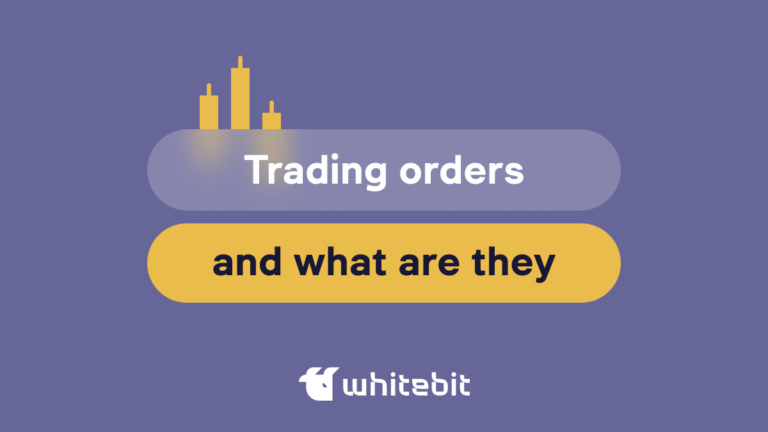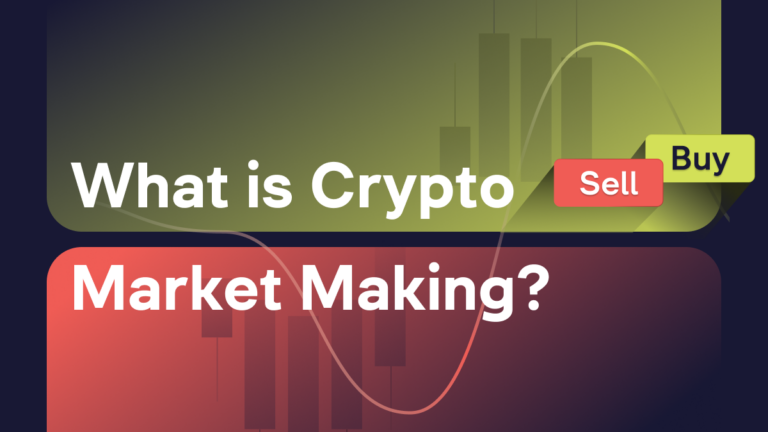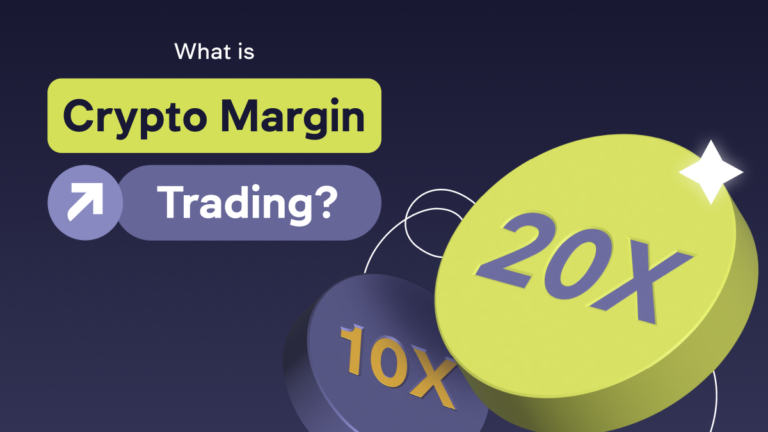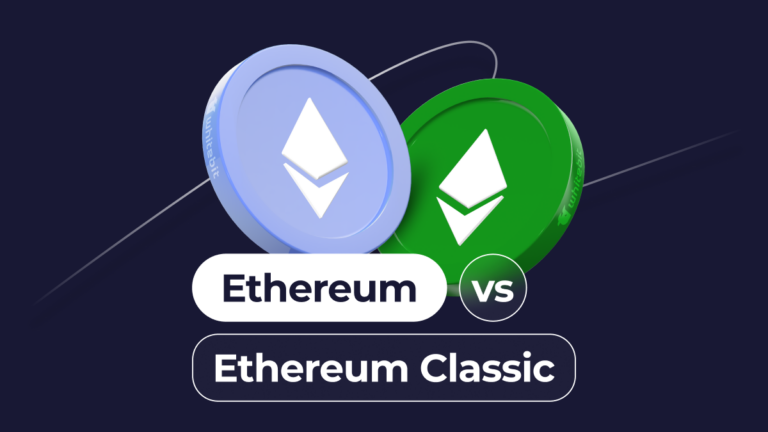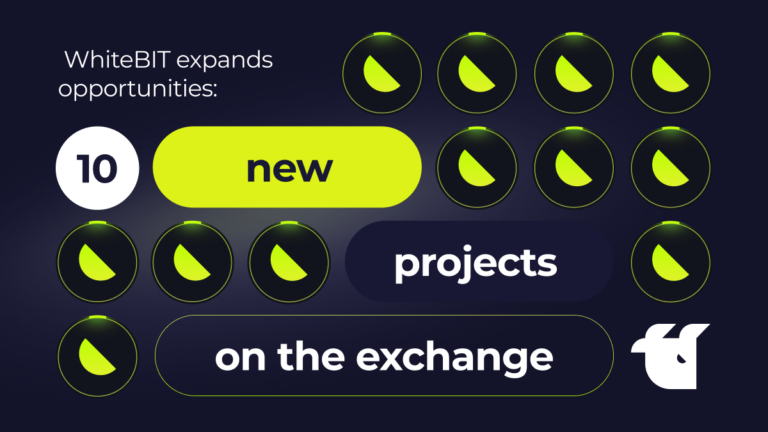What is Centralized and Decentralized Exchange
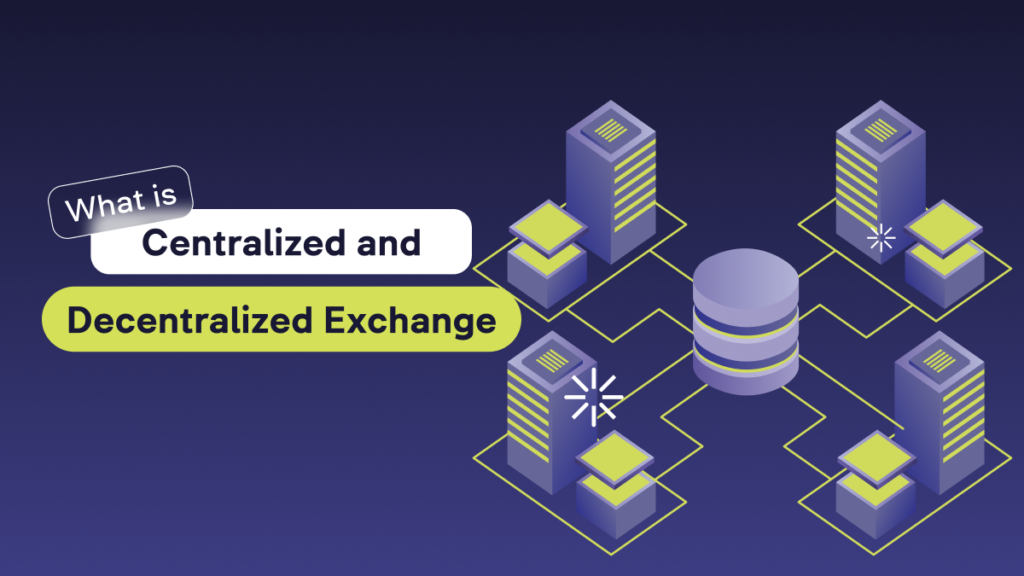
Content
- What is a Decentralized Exchange (DEX)?
- How Does Decentralized Exchange Work?
- Are Decentralized Exchanges Legal?
- Types of Decentralized Exchanges
- Off-Chain Order Books
- Automated Market Makers (AMMs)
- DEX Aggregators
- Advantages and Disadvantages of Decentralized Exchanges
- Tips for Using Decentralized Exchanges
- Prospects of DEX Exchange
- What Is a Centralized Exchange?
- How Does a CEX Exchange Work?
- What Services Does a Centralized Exchange (CEX) Offer Compared to a DEX?
- Advantages and Disadvantages of Centralized Exchanges
- Difference between Centralized and Decentralized Exchange
- Conclusion
Decentralized exchanges (DEXs) have revolutionized the cryptocurrency market by offering new and innovative ways to interact with digital assets. DEXs provide users with unprecedented privacy and full control over their assets, eliminating the need for intermediaries and centralized controlling entities. In this article, we will not only explain what is a cryptocurrency exchange, but also delve into the definition of DEX, how it works, and how DEXs differ from crypto centralized exchanges.
What is a Decentralized Exchange (DEX)?
Decentralized exchanges (DEXs) are cryptocurrency trading platforms based on blockchain technology and smart contracts. They enable users to exchange digital assets directly with one another without the involvement of intermediaries, which means that DEXs represent a free trade zone in the world of cryptocurrency. The primary advantage of DEXs is eliminating the need for a central authority, which can become a target for hacking attacks or manipulation. This makes decentralized exchanges more resilient to hacks and cyberattacks.
How Does Decentralized Exchange Work?
DEXs operate on blockchains like Ethereum and are governed by smart contracts, ensuring secure and transparent cryptocurrency trading. Users create orders by signing them with their private keys, guaranteeing high security. DEXs utilize automated market makers (AMM) to provide liquidity (the term comes from the stock market), replacing the traditional order book with liquidity pools where the crypto exchange rate is determined automatically. Smart contracts execute transactions by transferring funds between participants’ wallets and recording transactions on the blockchain. Liquidity provider earn fees, incentivizing them to support the platform. The support of token standards, such as ERC-20, ensures broad compatibility and enhances trading opportunities.
When Did Decentralized Exchanges Emerge?
Decentralized exchanges (DEXs) began to appear in 2014 with the development of blockchain technologies and smart contracts on the Ethereum platform. One of the first such exchanges was EtherDelta, launched in 2016. It allowed users to exchange ERC-20 tokens directly with each other without intermediaries, marking the beginning of the era of decentralized cryptocurrency trading. This step opened new horizons for the cryptocurrency market, offering more secure and transparent digital asset exchange methods.
Are Decentralized Exchanges Legal?
Many may wonder if decentralized cryptocurrency exchange is legal. In most countries, their use is not prohibited; however, the legal status and regulations can vary significantly. Regulators often focus on compliance with anti-money laundering (AML) and know-your-customer (KYC) laws, which can impact the operational activities of DEXs in different jurisdictions.
Types of Decentralized Exchanges
On-Chain Order Books
Decentralized exchanges with on-chain order books store and process all orders on the blockchain, ensuring transparency and decentralization. Users create orders that are recorded on the blockchain via smart contracts. When orders match, the smart contract automatically executes the trade, transferring assets between users’ wallets. The advantages include complete transparency of all transactions and elimination of order manipulation. However, operations can be slow and expensive due to gas fees.
Off-Chain Order Books
Decentralized exchanges with off-chain order books store and process orders outside the blockchain, ensuring high speed and low costs. Users create and sign orders locally, sending them to a server or relayer. When an order matches, the trade data is sent to the blockchain for execution via a smart contract, reducing gas costs and improving performance. This approach is decentralized, as the servers cannot access users’ funds.
Automated Market Makers (AMMs)
Decentralized exchanges with automated market makers (AMMs) operate based on liquidity pools instead of traditional order books. This type of decentralized exchange uses liquidity pools where each token pair maintains a specific ratio. When a trade occurs, the AMM smart contract automatically calculates the exchange rate based on the current balance of tokens in the pool. This ensures cryptocurrency liquidity and allows users to trade anytime without waiting for order matching.
Decentralized exchanges with AMMs, such as WhiteSwap, attract users by not requiring KYC procedures. They also offer passive crypto income through liquidity provision, as users earn a share of the trading fees generated in the pool.
DEX Aggregators
A DEX aggregator is a decentralized exchange platform consolidating liquidity from various decentralized exchanges to provide users with the best prices and minimize slippage during trading. It automatically splits and routes orders across multiple exchanges to find the optimal trading paths. Such decentralized exchanges allow traders to access a larger volume of liquidity and improve DEX trading conditions without manually checking each exchange.
Advantages and Disadvantages of Decentralized Exchanges
| Pros of DEX | Cons of DEX |
| Full control over funds | High gas fees |
| The biggest security | Limited liquidity |
| Transparency and immutability | Complexity for newcomers |
| No intermediaries | Slow transaction speeds |
| Anonymity and privacy | Limited functionality |
| Censorship resistance | Potential temporary losses in AMM |
| Passive income through liquidity | Dependence on smart contract reliability |
Tips for Using Decentralized Exchanges
- Use Reliable Crypto Wallets: Ensure the security of your funds by using proven and reliable cryptocurrency wallets, such as MetaMask or Trust Wallet.
- Check Smart Contracts: Study smart contracts to ensure their security and the absence of vulnerabilities. Use proven DEXs.
- Assess Liquidity: Before trading, ensure the chosen DEX has sufficient liquidity to avoid significant slippage.
- Consider Gas Fees: Carefully monitor current gas fees to avoid overpaying for transactions.
- Use DEX Aggregators: Utilize decentralized crypto exchange aggregators to get the best prices and minimize slippage.
Prospects of DEX Exchange
A DEX crypto exchange is primarily about technology and innovation. The prospects for decentralized exchanges look promising due to the growing interest in decentralized finance (DeFi), increasing users, and technological advancements. DEXs continue to evolve, offering more user-friendly interfaces, enhanced liquidity, and innovative mechanisms such as liquidity aggregators and cross-chain trading. With the tightening regulations on centralized exchanges, DEXs are becoming increasingly attractive to traders seeking greater security, privacy, and control over their funds.
What Is a Centralized Exchange?
A CEX is a cryptocurrency trading platform managed by a centralized organization. On such exchanges, users create accounts, verify their identity, and store their funds on the exchange’s accounts. The CEX centralized exchange acts as an intermediary between buyers and sellers, handling all aspects of trading, including order processing, asset storage, and transaction security.
Centralized exchanges offer users high liquidity, a wide selection of trading pairs, and additional services such as margin trading, futures, and lending. The main advantages of these exchanges are ease of use, fast transactions, and customer support. However, CEXs are also subject to risks associated with centralized asset storage, such as hacks and regulatory restrictions. A reliable, secure, and transparent exchange is key to capital preservation. For example, the WhiteBIT exchange stores 96% of digital assets in cold wallets and uses WAF to detect and block hacker attacks.
How Does a CEX Exchange Work?
Centralized cryptocurrency exchange operates as intermediaries managed by a centralized organization (company). Users must verify their accounts and deposit funds into the exchange’s account. All operations within a CEX exchange occur in the order book rather than on the blockchain. There are makers and takers on a CEX cryptocurrency: makers place buy or sell orders, adding liquidity, while takers execute these orders, removing liquidity from the market.
When Did Centralized Exchanges Appear?
Centralized exchanges (CEXs) emerged in the early 2010s, shortly after the creation of the first cryptocurrencies. One of the first such exchanges was Mt.Gox, which facilitated transactions between Bitcoin and national currencies.
Are Centralized Exchanges Legal?
CEX exchanges are legal in most countries, but their activities are regulated by laws and regulations, such as anti-money laundering (AML) requirements and know-your-customer (KYC) rules.
What Services Does a Centralized Exchange (CEX) Offer Compared to a DEX?
Let’s look at a brief list of services offered by centralized exchanges:
- Margin Trading: Allows traders to borrow funds to increase the size of their positions.
- Crypto Loans (Crypto Borrow): Allows users to borrow cryptocurrency using their assets as collateral.
- Crypto Lending (Crypto Deposits): Users can lend their assets to other users or platforms and earn interest.
- Launchpad: Crypto Launchpad offers exclusive opportunities to purchase tokens of promising cryptocurrency projects at a fixed price before they enter the market.
- Crypto Withdrawal: CEX allows users to withdraw cryptocurrency to a bank card. Additionally, all exchanges have a crypto exchange, which enables users to convert crypto to fiat currency quickly and vice versa.
Advantages and Disadvantages of Centralized Exchanges
| Advantages of CEX | Disadvantages of CEX |
| High liquidity | Centralized storage |
| Fast order execution | Hacking risks |
| Convenient spot trading | Regulatory restrictions |
| Support for fiat currencies | The largest fees |
| 24/7 customer support | Identity verification required |
| Margin trading with leverage, futures and derivatives trading | No direct ownership of assets |
Should You Use Centralized Exchanges?
Consider CEX if you value high liquidity, fast order processing, and convenience. However, keep in mind the aforementioned disadvantages as well.
Difference between Centralized and Decentralized Exchange
Centralized and decentralized exchanges have their benefits and drawbacks. Let’s look at the difference between DEX vs CEX
| Criterion | CEX | DEX |
| Liquidity | High | Low/Medium |
| Processing Speed | Fast order processing | Slower, depends on liquidity and network speed |
| Ease of Use | User-friendly interfaces, suitable for beginners | Less user-friendly for beginners |
| Control over Assets | Exchange is responsible for asset security | Users are responsible for asset security |
| Security | Hacking risks | High security |
| Anonymity | Low, requires identity verification | Anonymous, no identity verification |
| Fees | High trading fees | Low trading fees but high blockchain transaction fees (gas) |
| Regulation | Highly regulated | Less regulated |
Conclusion
In this article, we explored what is CEX and what is DEX. Let’s repeat some of the main features and differences. A decentralized exchange (DEX) offers anonymity and full control over your assets, while a centralized exchange (CEX) provides convenience and access to a wide range of services. The choice between DEX and CEX depends on your priorities. CEXs offer high liquidity, fast order processing, a user-friendly interface, and additional services, but they require verification and carry risks associated with centralized storage. DEXs provide a high level of security, control over assets, and anonymity, but they can be less convenient and have high transaction fees on the blockchain. When considering a centralized exchange vs decentralized exchange, it’s essential to weigh the trade-offs between the convenience and high liquidity of CEXs and the privacy and control over assets offered by DEXs. CEX or DEX — the choice is yours.



